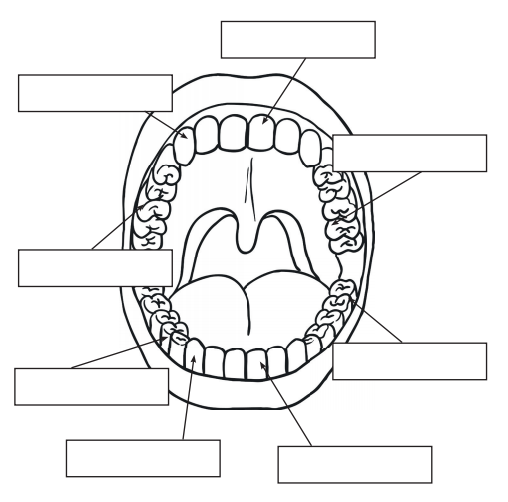Topic
Wonderful Warsop!
Click on the link below for this week's tasks:
Week commencing 13/07/20
| Science: Wildlife Sit in your garden or get an adult to take you somewhere for wildlife-spotting, ie. The Carrs. What different types of birds can you spot? Identify them using the guide or this website: https://www.belfasttelegraph.co.uk/news/environment/whats-that-bird-28520287.html Record what you see and display the information. | Art: My Favourite Place Draw, paint or make a model of your favourite place in Warsop (The Carrs? The skate park?) | Community: Litter Pick You must have an adult with you to do this activity! Have you noticed there is often a lot of litter around Warsop? You can help! Go on a litter pick- The Carrs is a good place to start. Make sure you wear gloves! |
| Writing: Persuasion By now you must have discovered lots of things that make Warsop a nice place to live. But what would make it better? Is there a particular shop you think we need, or something for free time? Write a persuasive letter, explaining what you think we need and why. Yo u could even send it to your MP! | Our church Did you know that the church is a Norman church, which means it’s about 900 years old! Get an adult to take you up to the church and have a walk round. There are some features that can help you identify it as a Norman church. See if you can spot any by using the guide or this website: http://downloads.bbc.co.uk/history/handsonhistory/HOH_Churches_eye_spy.pdf | Presentation! Put together all of the information you have discovered over the last couple of weeks. You could make a PowerPoint about Warsop, a leaflet or a brochure. Be creative! |
Our theme for the next three weeks will focus on exploring the local area. Some tasks will take longer than others, so feel free to complete these over several days if needs be. You may do these in any order that you wish, and present your work in a way that suits you- be creative!
| Science: Pond-dipping You must have an adult with you to do this activity! Get a bucket and a fishing net and go to the Carrs. Stand in the shallow part of the river and fill the bucket with water. Then dip the net into the river and move it around slowly. Lift it out and place it inside out in the bucket. Use the Pond Minibeasts sheet to identify what you have caught. | Art: Draw/ paint the view from your bedroom window. You might want to use the blank window sheet. 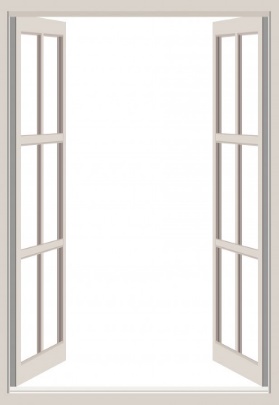 | History: Old and New http://www.warsopweb.co.uk/gallery/main.php?g2_itemId=190 Go to the website above and study some of the old black and white pictures of buildings in Warsop? Many of them are still standing- do you recognise any of them? Now get an adult to take you on a walk to visit these buildings. Take a photo or sketch the building. How has it changed? |
| Persuasion! What are some of the things you like about living in Warsop? What makes it a good place to live? Your task is to make a leaflet to convince people to come and live in Warsop. | Research: Do you have grandparents or maybe an elderly neighbour who has lived in Warsop a long time. Interview them to find out about how Warsop has changed over the years. Present your findings in an interesting way! | |

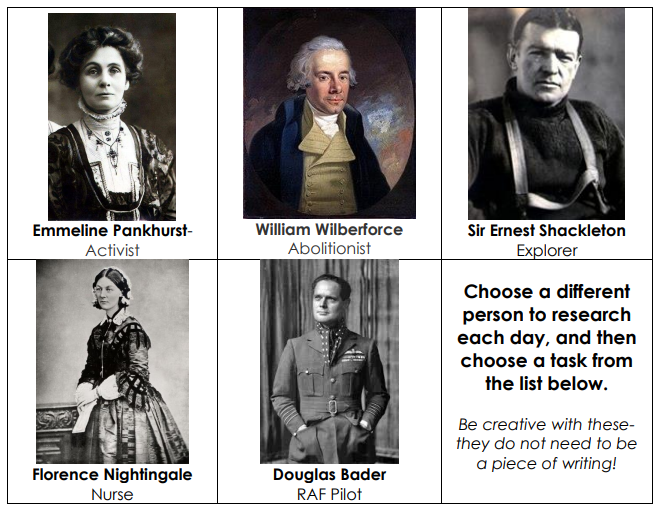
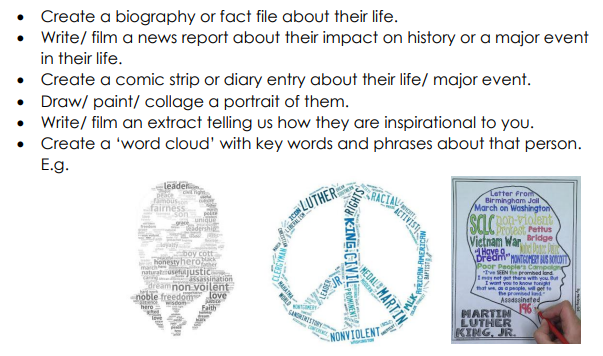
Topic Tasks Week Commencing 22.6.20

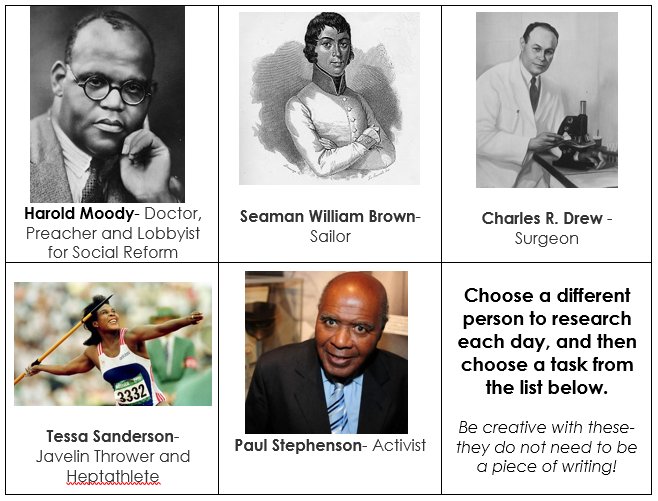
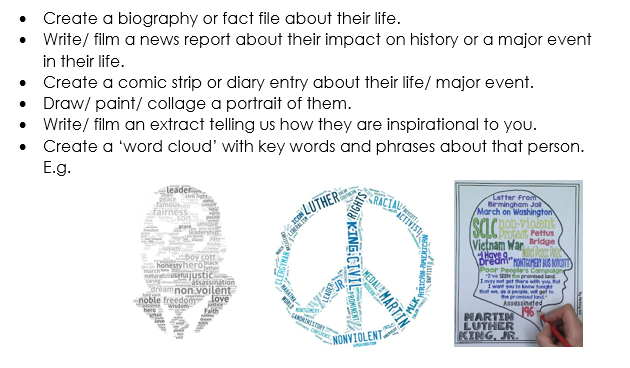
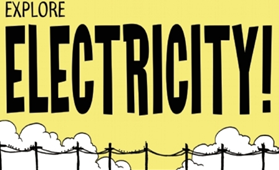
Our science theme for the next two weeks will focus on exploring electricity. Some tasks will take longer than others, so feel free to complete these over several days if needs be. You may do these in any order that you wish, and present your work in a way that suits you- be creative!
Topic Tasks Week Commencing 8.6.20
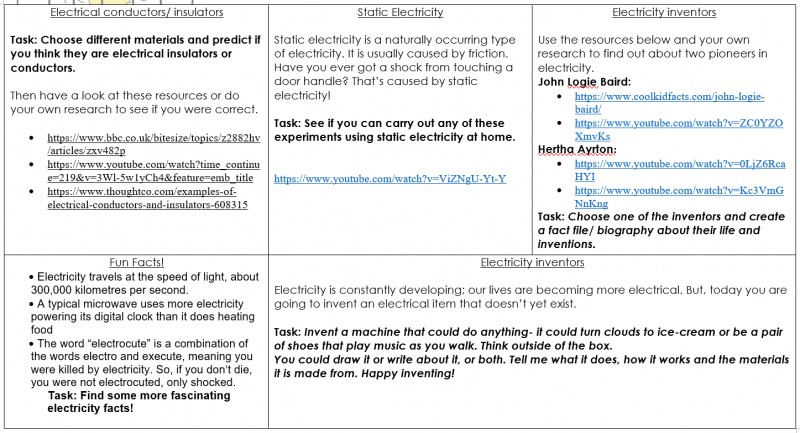
Tasks for Week Commencing 01.06.20
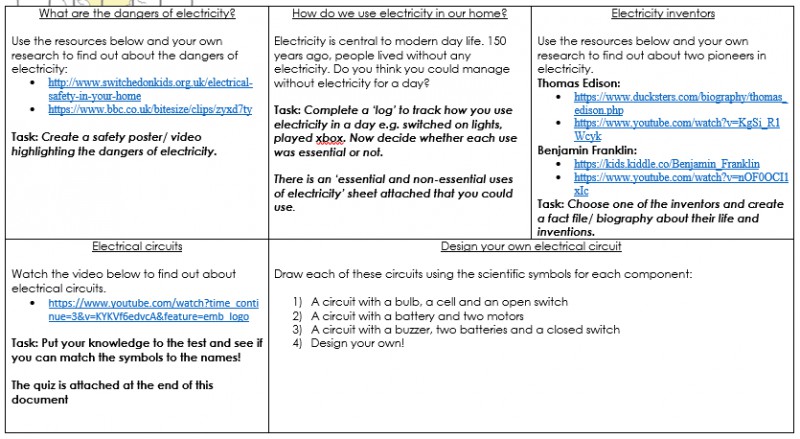
This half-term we will be learning about Greece/Ancient Greece. Each week you will be given a selection of activities to undertake during the course of that week. You may undertake these tasks in any order that you wish. Bear in mind that some will take longer than others to complete.
Click on the link below for this week's tasks.
There are also some links to other resources that you may find helpful.
Week commencing 18th May
Topic Tasks Week Commencing 18.5.20
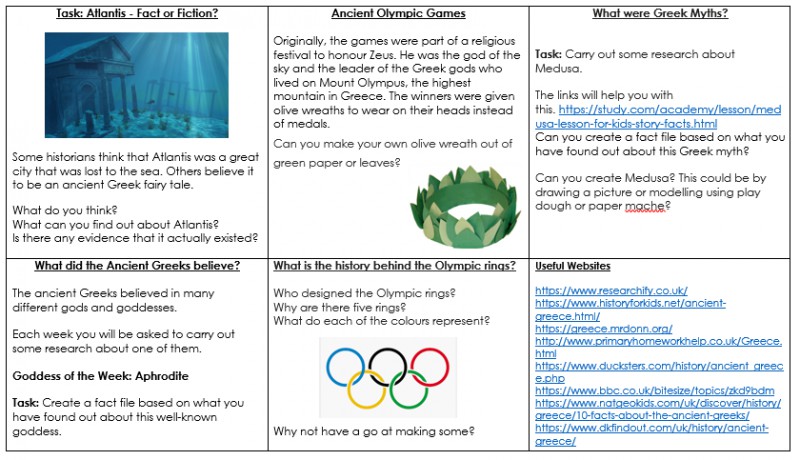
Week commencing 11th May
Topic Tasks Week Commencing 11.5.20
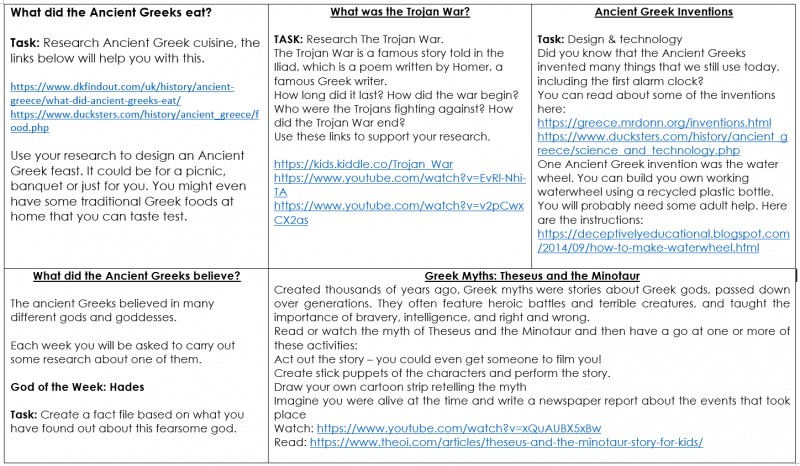
Week commencing 4th May
Topic Tasks Week Commencing 4.5.20
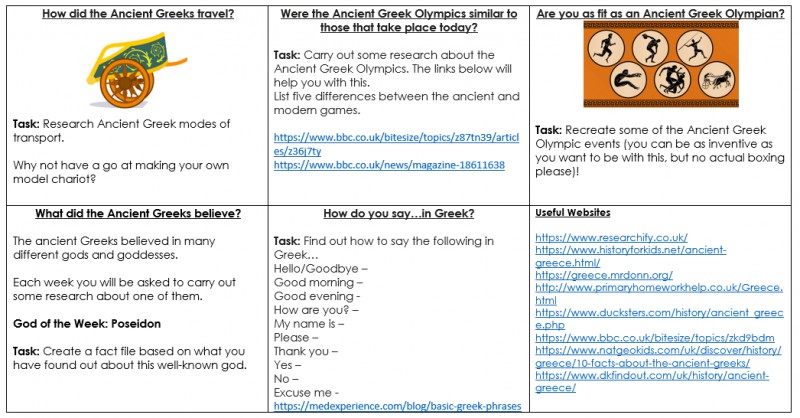
Week Commencing 27th April
Topic Tasks Week Commencing 27.4.20
Useful Resources:
Week Commencing 20th April
Topic Tasks Week Commencing 20.4.20
Useful Resources:
Friday 3rd April
Thanks for your posters about looking after your teeth!
Today we are looking at food chains. What is a food chain? Watch this video to find out.
Here is some examples of food chains:

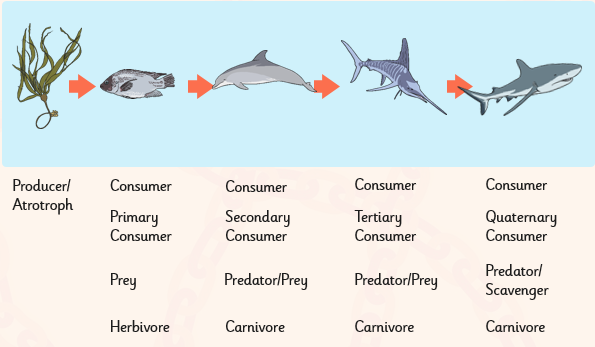
Your tasks:
1. Have a go at these food chain challenges in the Savannah, tundra or woodland here.
2. Create your own food chain. You can display this however you want. Be creative, you could draw them, make a paper chain or even a powerpoint! Here are some pictures to spark ideas:

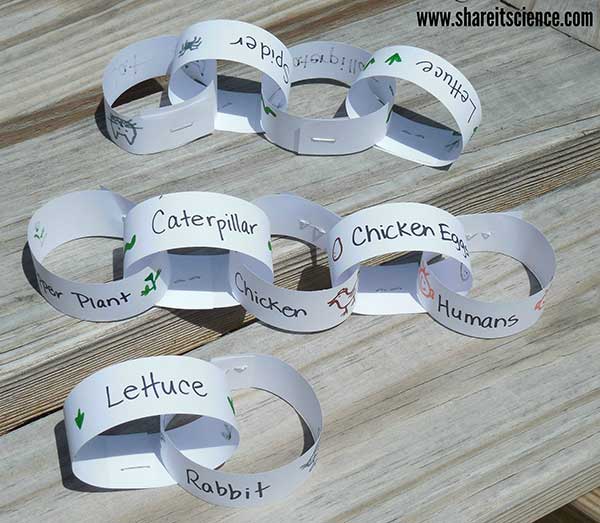



If you fancy a challenge, choose a food chain challenge card.
3. Label your food chain with these key words:
Producer, consumer, herbivore, carnivore, omnivore, predator, prey
4. Email your fantastic food chains to me, I can't wait to see them! mallen@birklandsschool.co.uk
Thursday 2nd April
Today we are going to be looking at tooth decay. We will learn about what it is and how to prevent it.
First, watch this video from 3 minutes 35 seconds. We would have been doing this experiment in school if we could! You can give it a go at home if your grownup says it’s ok!
https://www.youtube.com/watch?v=th2ROcyH8Xw
Then read the information on this website about how to look after your teeth:
Your task today is to put all the information you have learnt into a poster to inform younger children what tooth decay is and how to look after their teeth properly. Make sure you send me a picture – I can’t wait to see them!
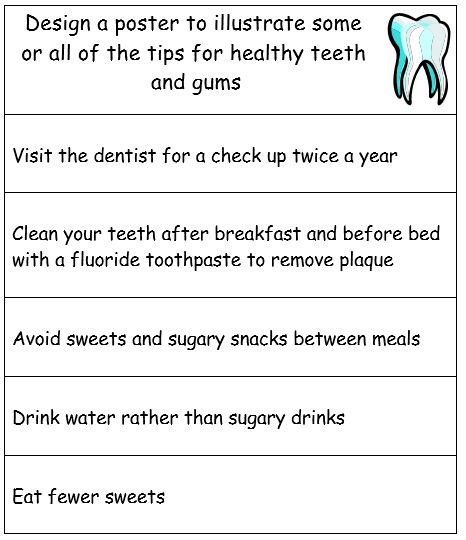
Other useful websites:
https://www.bbc.co.uk/bitesize/clips/zh2kjxs
https://www.colgate.com/en-us/oral-health/basics/brushing-and-flossing/how-to-brush
Wednesday 1st April
Today we are going to look at different types of teeth and their functions (jobs).
I want you to watch this video and read the information on this website about different teeth. There is also a 'build the mouth' activity you can do on there (have an explore).
Use what you have read to label the picture below with either molar, premolar, canine or incisor. Have a look at your own teeth, can you see the different types? SAY CHEESE
You can print the picture off or have a go at drawing one yourself. Now, can you decide what teeth I am describing below?
These are the first teeth we grow, they have sharp edges and help us to bite into food.
Write a description like this for each of the other types.
Extension (this is optional) 
Animals have different teeth depending on their diet, think about how our teeth are different to a tigers. This video talks about different animal's teeth.
Design your own fantasy animal and think about its diet, is it a herbivore, carnivore or omnivore? Draw your animal's teeth according to its diet. If you do this activity I would love to see your creations, please e-mail them to me at mallen@birklandsschool.co.uk
Tuesday 31st March
Well done- some of you have sent me some accurately labelled diagrams of the digestive system. Today we are going to look at the functions (jobs) of all those different parts. Click here to watch a short video about the digestive system.
Below are two tables. One contains the parts of the digestive system, the other contains the functions. Your task is to match them up correctly.

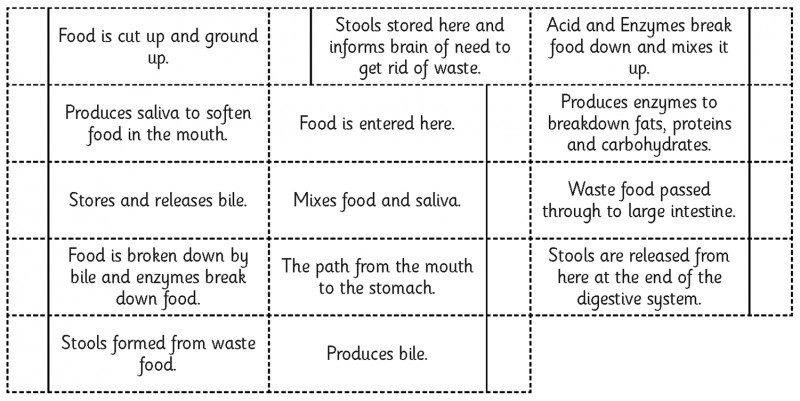
Here are some links to other websites to help you:
https://www.bbc.co.uk/bitesize/topics/z27kng8
https://www.ducksters.com/science/digestive_system.php
https://kidshealth.org/en/kids/digestive-system.html
Monday 30th March
Today we are going to start our science work on Teeth & The Digestive System!
We will start by looking at the different parts of the digestive system. First click here to watch a short video about the digestive system.
Your task is to label the parts of the digestive system with these words: mouth, tongue, teeth, salivary glands, oesophagus, stomach, duodenum, small intestine, large intestine, gallbladder, pancreas, liver, rectum, anus.
If you have a printer you can print this image and label it. If not, have a go at sketching it. Don't worry about artistic perfection- the important thing is the labelling.
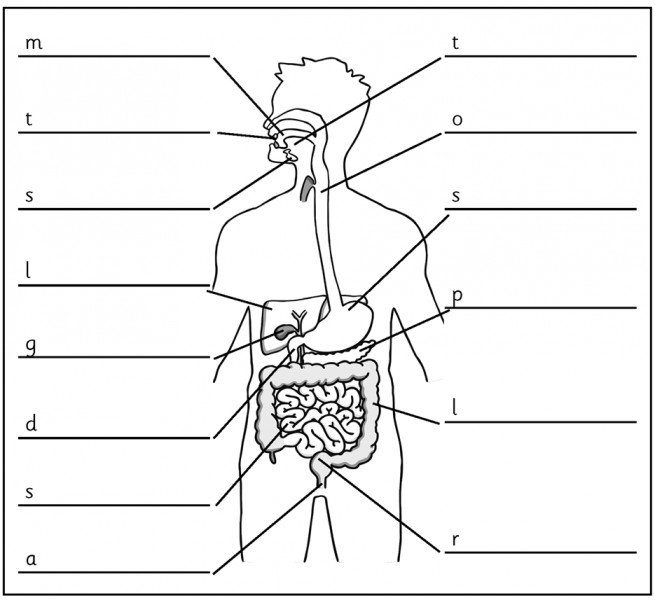
Here are some links to other websites to help you:
https://www.theschoolrun.com/homework-help/human-digestive-system
https://www.natgeokids.com/uk/discover/science/general-science/your-digestive-system/
https://www.ducksters.com/science/digestive_system.php
Monday 23rd- Friday 27th March
Here are some activities to recap our 'Wild World' topic. Choose one to complete each day, I can't wait to see what you come up with.
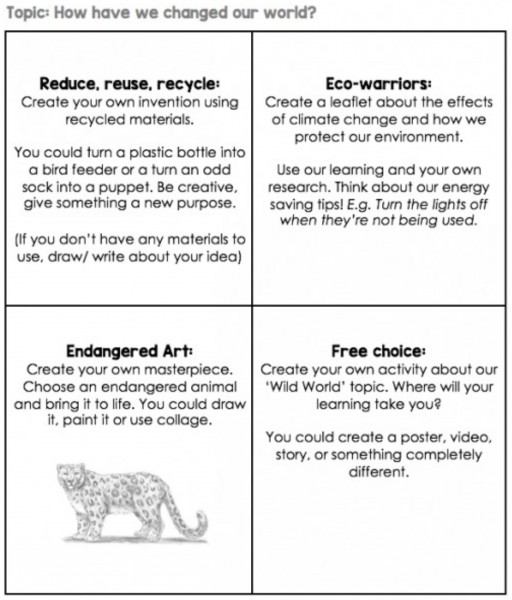
Wild World with Steve Backshall
On Wednesday 25th March at 9.30 am, Steve Backshall is giving a live lesson on his facebook and youtube page all about the wild world. From habitats to holotypes, parasites to pademelons, he will be doing his best to bring the wild world into your living room, from... his living room!



